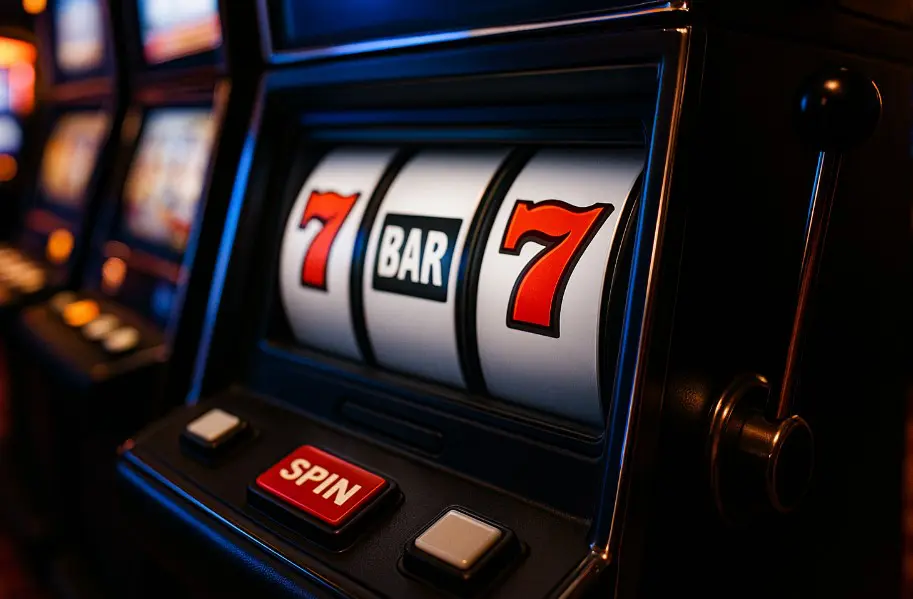If you hang around a casino long enough, you’ll eventually overhear someone swear that a particular slot is “hot” and ready to spill coins—or, just as often, that the one across the aisle is “cold” and not worth a spin. It’s part folklore, part superstition, and part wishful thinking. I can’t count how many times I’ve had strangers tap me on the shoulder with the same hushed advice: “Don’t bother with that one, it’s dead.” But here’s the thing—machines don’t have moods. Let’s untangle where this whole hot vs. cold myth comes from, and whether there’s anything to it beyond gambler chatter.
Where the Hot and Cold Slot Talk Started
The myth has history. Back in Vegas in the 70s and 80s, you could practically hear the rumors bouncing off the neon walls. If a machine hadn’t paid in a while, players were convinced it was “due.” My uncle once told me he’d walk the casino floor like a detective, scouting for machines with dusty credit meters, convinced he was about to uncover a jackpot. Sometimes he’d win, more often he didn’t, but the story lived on. Casinos never bothered to correct people—why would they? It made machines seem alive, unpredictable, almost personal.
How Slots Actually Work: The Cold Math of RNG
Every modern slot—whether it’s Microgaming’s polished digital titles or an old IGT cabinet humming in the corner—runs on a Random Number Generator (RNG). The RNG spits out thousands of numbers every second, faster than you can blink. Hit spin, and the program freezes on one. That’s what decides the reels you see.
It doesn’t matter if the last spin was a jackpot or a total miss. The machine doesn’t “know.” It has no memory. Each spin is a fresh coin flip, untethered to the past. If you’ve ever flipped a coin ten times in a row and kept getting heads, you’ll recognize the feeling—strange, suspicious, but still just random.
Why People Still Believe in Hot and Cold Machines
Humans are pattern-hungry creatures. We want to see order. Psychologists call it the clustering illusion. Three wins in a row? Must be a hot streak. Twenty losses straight? The machine’s gone ice cold. I remember watching a guy in Atlantic City pound the spin button while muttering, “She’s waking up, she’s waking up.” For him, a couple of small wins were signs of life. To me, it was just variance.
Layer on the gambler’s fallacy—that faulty idea that past events shape future ones—and it all makes sense. If you flip a roulette wheel and land on black six times, players will practically line up on red. With slots, the logic goes: “It hasn’t paid in hours, so it has to pay soon.” Trouble is, probability doesn’t have a memory. The next spin has the exact same odds as the last.
The Myths That Just Won’t Quit
These little nuggets of “wisdom” float around casinos like cigarette smoke:
- “Someone just hit a jackpot on that machine—don’t touch it, it’s frozen.”
- “The casino tightens payouts at night.”
- “If a machine sits idle for hours, it’s ready to explode.”
- “Bonuses always come in cycles, just wait.”
None of it holds water. Regulators like the Nevada Gaming Commission or Malta Gaming Authority require strict auditing. Companies like Playtech and Slotomania would implode if their games weren’t fair. And changing payout percentages isn’t something a pit boss flips like a light switch—it involves physically swapping chips or software under strict oversight. The myths persist because they’re more fun than the truth.
The Gambler’s Fallacy, Up Close
I once saw a guy in Tunica practically glue himself to a quarter machine. He’d been at it for what had to be three hours, eyes bloodshot but convinced it was primed. Finally, exhausted, he gave up. The next player sat down, hit spin, and landed a $500 win within minutes. You can imagine the shouting match. The first guy stormed out, claiming the casino “stole” his jackpot. What actually happened? Pure dumb chance. That spin would’ve been different if he’d pressed the button a fraction of a second earlier. The machine wasn’t cold, wasn’t hot—it was random.
How Casinos and Manufacturers Keep It Honest
There’s an odd comfort in knowing the randomness is really random. Slot makers like IGT and Microgaming submit their games to independent auditors. These auditors run millions of simulated spins to make sure the advertised RTP—say, 96%—is accurate. If you’re picturing shady guys in smoky back rooms pulling levers to tighten your machine, think again. The real strategy casinos use is placement. They’ll stick flashy, higher-paying machines near walkways or entrances so people see and hear the wins. It’s atmosphere, not manipulation.
Why the Myth Feels Real Anyway
If you’ve ever been on a streak, you know the feeling. The reels light up, coins clang, and your heart beats faster. In those moments, it feels like the machine likes you. When you go dry for an hour, it feels like punishment. Both experiences are true emotionally, even though the math underneath never budges. Hot and cold are states of mind, not states of the machine.
I’ve even caught myself saying it. After a string of bonuses in a short time, I’ll lean back and joke, “She’s hot tonight.” It doesn’t mean I believe it—it just captures the rush better than saying “variance.”
Can You Actually Spot a Hot Machine?

Short answer: no. There’s no telltale sign, no “secret” to knowing when a machine’s about to pay. You can’t sniff out a jackpot by noticing the last guy lost. The RNG makes that impossible. But in another sense, yes—you can find a machine that feels hot for you. If the payouts are trickling in and you’re smiling instead of grinding your teeth, that’s as hot as it gets. That’s the only metric that matters.
Real Ways to Make Slot Play Better
So if hot and cold are myths, what actually helps? A few things:
- Check the RTP. Higher percentages (95–97%) give you better long-term bang for your buck.
- Match volatility to mood. Want longer playtime? Go low volatility. Chasing big thrills? High volatility is your lane.
- Watch your state of mind. If you’re grumpy, tired, or chasing losses, even a win won’t feel good.
- Grab freebies. Casino promos, free spins, or bonuses are the rare places where value isn’t a myth.
- Know your exit. Decide your “I’m done” number before you start. Walking away on your terms beats chasing a cold streak every time.
Why the Debate Won’t Ever Die
Let’s face it, the myth is too juicy to fade away. Players love swapping stories of streaks and slumps. It gives the game personality. It feels better to blame a “cold machine” than to admit luck wasn’t on your side. And casinos won’t complain. A little superstition keeps butts in chairs and reels spinning.
Fact and Fiction, Side by Side
At the end of the night, slots don’t run hot or cold. They don’t have moods, memories, or streaks. What they do have is randomness—audited, relentless, and impossible to outsmart. Still, I’d be lying if I said I never call a machine “hot” after a nice little run. Myths stick because they add flavor. Just don’t let them empty your wallet.
FAQs About Hot and Cold Slot Machines
Are hot slot machines real?
No. The idea that a machine is “due” is just superstition. Each spin is independent and powered by RNG.
Why does a machine sometimes feel hot?
Because short-term streaks happen. A run of small wins feels exciting, but the math hasn’t changed.
Do casinos make machines cold after a jackpot?
Not in regulated markets. Adjusting payout settings requires hardware changes and oversight—not a quick switch.
What’s the gambler’s fallacy in slots?
It’s the belief that past spins shape future ones, like assuming a win is coming after a dry spell.
How can I boost my chances?
You can’t bend the odds, but you can pick higher RTP games, manage your budget, and take advantage of promotions to extend your play.


